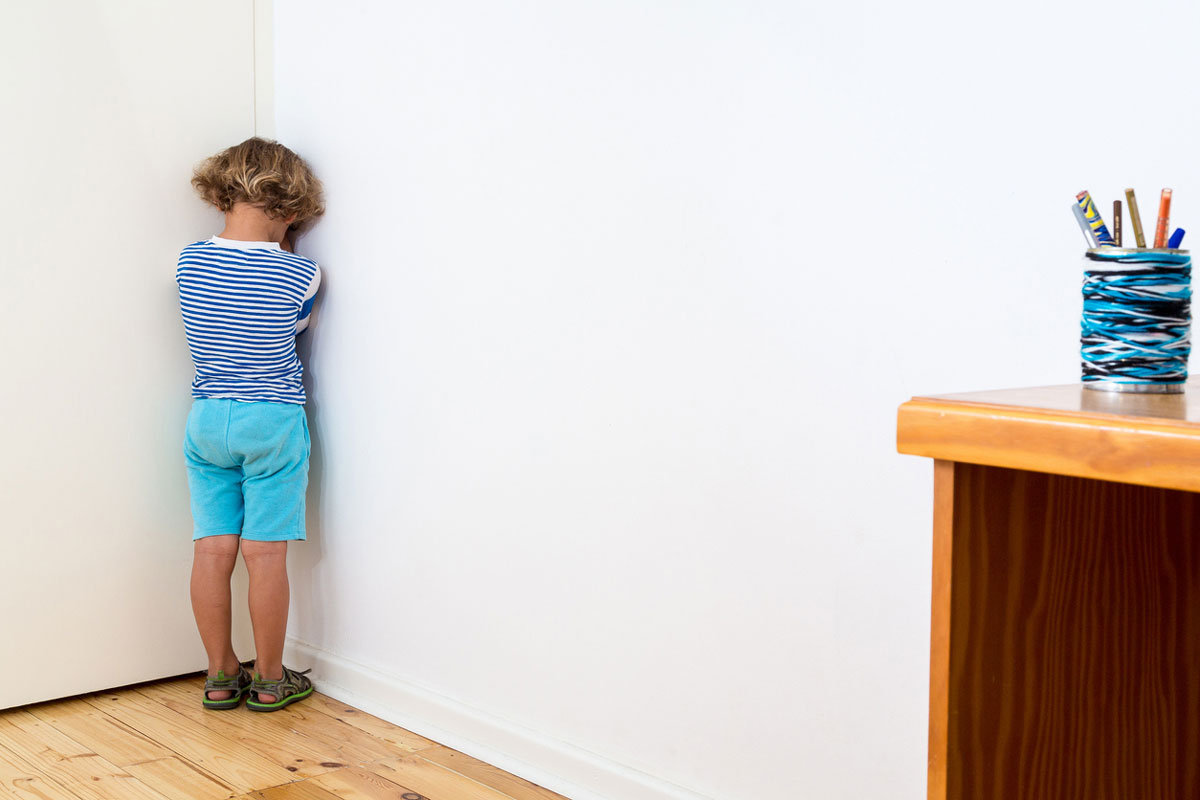Rethinking School Suspensions: A Focus On Positive Alternatives

Table of Contents
The Negative Impact of School Suspensions
School suspensions, while seemingly a straightforward disciplinary tool, carry far-reaching negative consequences for students and the educational system as a whole. The impact extends beyond simply missing class; it affects academic progress, social-emotional well-being, and disproportionately harms marginalized student populations.
Academic Consequences
Suspensions directly disrupt a student's education, leading to a cascade of negative academic outcomes. Increased absenteeism results in falling grades, difficulty keeping up with coursework, and a heightened risk of dropping out. The missed instructional time creates significant learning gaps, impacting standardized test scores and future academic prospects.
- Studies show a correlation between suspension rates and lower graduation rates. The longer a student is suspended, the less likely they are to graduate on time, if at all.
- Suspended students often fall behind their peers academically. Catching up on missed work can be challenging, creating a cycle of academic struggle. This can lead to feelings of frustration and disengagement. The resulting academic failure often contributes to further behavioral problems.
Social and Emotional Effects
Beyond academic setbacks, school suspensions have profound social and emotional consequences. The feeling of isolation and alienation caused by suspension can be devastating, particularly for students already struggling with social-emotional challenges. Removed from their support network of peers and teachers, suspended students are at increased risk of involvement in negative peer groups and even criminal activity.
- Suspensions can reinforce negative behaviors instead of correcting them. Instead of providing opportunities for reflection and rehabilitation, suspensions can exacerbate existing behavioral issues.
- The social stigma associated with suspension can damage a child's self-esteem. The label of "suspended student" can follow a child, impacting their social relationships and self-perception. This can lead to further behavioral problems as the student acts out to compensate for feeling stigmatized.
Disproportionate Impact on Marginalized Students
A critical concern regarding school suspensions is their disproportionate impact on marginalized students. Students of color and students with disabilities are suspended at significantly higher rates than their white and non-disabled peers. This disparity reflects and exacerbates existing systemic inequalities within the education system.
- Addressing implicit bias in disciplinary procedures is crucial. Educators need to be aware of their own biases and actively work to create fair and equitable disciplinary practices.
- Data-driven approaches are needed to identify and mitigate these disparities. Tracking suspension rates by race, ethnicity, and disability status allows for a better understanding of the problem and the implementation of targeted interventions. This data is essential for accountability and effective change.
Exploring Positive Alternatives to School Suspensions
The negative consequences of suspensions highlight the urgent need for alternative approaches to student discipline. Focusing on positive behavior interventions and restorative practices offers a more effective and equitable path towards creating positive school environments.
Restorative Justice Practices
Restorative justice practices emphasize repairing the harm caused by misbehavior through dialogue and reconciliation. Instead of punitive measures, this approach brings together students, victims (if any), and school staff to collaboratively address the situation. The focus is on understanding the root causes of the misbehavior and finding solutions that promote healing and accountability.
- Restorative circles provide a safe space for communication and accountability. These facilitated conversations allow all parties to share their perspectives and work together to develop solutions.
- This approach fosters empathy and understanding among all parties involved. By focusing on repairing harm and restoring relationships, restorative justice promotes a sense of community and responsibility.
Positive Behavior Interventions and Supports (PBIS)
PBIS is a proactive, school-wide approach to behavior management that emphasizes positive reinforcement. By establishing clear expectations for behavior and consistently rewarding positive actions, PBIS creates a school culture of respect and responsibility. This framework involves teaching and reinforcing appropriate behaviors, rather than solely reacting to negative behaviors.
- PBIS involves teaching and reinforcing appropriate behaviors. It's about proactively teaching students the skills they need to succeed socially and academically.
- Data collection and analysis are integral to effective PBIS implementation. Regularly monitoring behavior data helps schools identify trends and adjust their strategies accordingly. This data-driven approach ensures that the PBIS system is effective and responsive to the needs of the students.
Counseling and Mental Health Services
Many behavioral issues stem from underlying emotional and mental health challenges. Providing readily accessible counseling and mental health services within the school setting is crucial for addressing these root causes. Early intervention can prevent minor issues from escalating into major problems, and offering support reduces reliance on suspensions as a primary disciplinary response.
- Early intervention can prevent minor issues from escalating. Addressing behavioral issues early on prevents them from becoming more serious problems requiring more drastic interventions.
- Addressing trauma and mental health needs is crucial for effective behavior management. Many students’ behavioral issues are rooted in trauma or mental health conditions, and addressing these underlying issues is critical.
Conclusion
Rethinking school suspensions requires a fundamental shift in how we approach student misbehavior. The negative consequences of suspensions—particularly their academic, social, and emotional impacts—far outweigh any perceived benefits. By implementing positive alternatives like restorative justice practices, PBIS, and enhanced mental health services, we can create safer, more supportive learning environments for all students. Let's move beyond the punitive model of school suspensions and embrace a future where positive behavior interventions are the norm, leading to a more inclusive and effective education system. Let's commit to finding better ways to address student behavior and continue the conversation on rethinking school suspensions and exploring alternative disciplinary methods.

Featured Posts
-
 Christina Aguileras New Video A Jaw Dropping Transformation
May 03, 2025
Christina Aguileras New Video A Jaw Dropping Transformation
May 03, 2025 -
 Energy Policy Overhaul Guido Fawkes On The Revised Direction
May 03, 2025
Energy Policy Overhaul Guido Fawkes On The Revised Direction
May 03, 2025 -
 Nigel Farages Shrewsbury Visit Flat Cap G And Ts And Tory Criticism
May 03, 2025
Nigel Farages Shrewsbury Visit Flat Cap G And Ts And Tory Criticism
May 03, 2025 -
 Nick Robinson And Emma Barnett Uncovering The Reason For Their Separate Radio 4 Programs
May 03, 2025
Nick Robinson And Emma Barnett Uncovering The Reason For Their Separate Radio 4 Programs
May 03, 2025 -
 Coinbase Coin And Riot Platforms Riot A Comparative Stock Market Analysis
May 03, 2025
Coinbase Coin And Riot Platforms Riot A Comparative Stock Market Analysis
May 03, 2025
Latest Posts
-
 Analyzing Fleetwood Macs Greatest Hits Reasons For Continued Popularity
May 04, 2025
Analyzing Fleetwood Macs Greatest Hits Reasons For Continued Popularity
May 04, 2025 -
 Fleetwood Macs Top Singles Chart Success And Lasting Legacy
May 04, 2025
Fleetwood Macs Top Singles Chart Success And Lasting Legacy
May 04, 2025 -
 Understanding Peter Greens Absence From Fleetwood Macs Success
May 04, 2025
Understanding Peter Greens Absence From Fleetwood Macs Success
May 04, 2025 -
 New Fleetwood Mac Album Chart Projections And Fan Expectations
May 04, 2025
New Fleetwood Mac Album Chart Projections And Fan Expectations
May 04, 2025 -
 96 1 The Rocket Exploring Peter Greens Influence On Fleetwood Mac
May 04, 2025
96 1 The Rocket Exploring Peter Greens Influence On Fleetwood Mac
May 04, 2025
